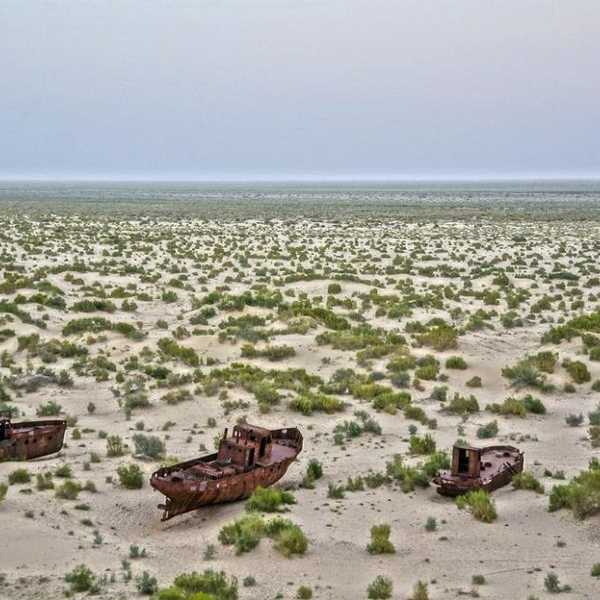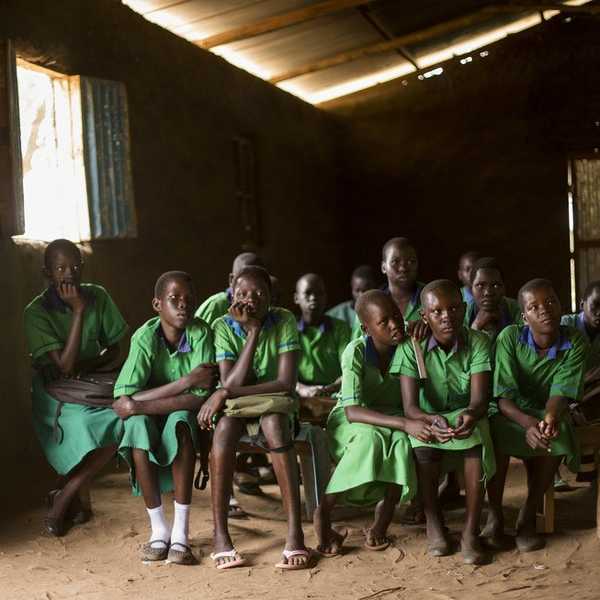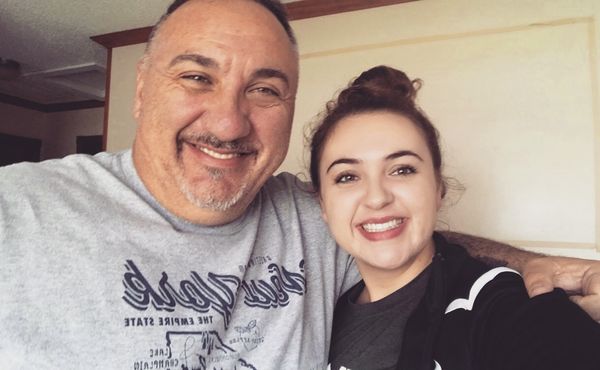Amidst news of terrorism and the rise of ISIS, we hear little of any other issue in the Middle East. But, one of the biggest yet least-known issues in the region is of water scarcity.
Water is a valuable commodity in the Middle East. Why? Not only are parts of this region dry and desert, but water largely goes to agriculture and to the needs of a quickly growing population. Water scarcity makes the region vulnerable, creates regional tensions, and may lead to future conflicts. Here, water isn’t just an environmental concern, but also a political one.
The Middle East has historically been one of the aridest regions on the globe, but it is becoming even drier. A study from the National Oceanic and Atmospheric Administration showed that the Mediterranean Basin is already heading towards a drier climate. A World Bank report categorizes nine countries within the MENA (The Middle East and North Africa) region as “hyper-arid,” where the total renewable water resources are below the “absolute scarcity” threshold. Not only does climate change drive the issue of water scarcity, population growth, decreasing freshwater resources, economic growth, and shortsighted governmental practices contribute to the water problem.
This region experiences the highest annual population growth rate in the world. Certain countries such as the United Arab Emirates are comprised of mostly immigrants; the UAE’s population is 80 percent foreign immigrants. A growing population puts an enormous strain on limited water resources. According to 2005 World Bank Sector Assessment Report, freshwater availability in the region decreased from 680 cubic meters per capita in 1970 to 180 cubic meters per capita in 2000. The report projected that availability will be below 100 cubic meters in 2030, but the population will have increased to almost 56 million. These numbers mean little out of context, so consider this: the international water poverty line is 1000 cubic meters per capita, and the MENA average is 1100 cubic meters. Not only will water become even more scarce in the coming decades, it already is scarce.
The oil and gas industries are the largest economic sectors in every Gulf country, accounting for about 80 percent of each country’s government revenue. Thus, countries within the GCC have become wealthy and experienced marked improvements in healthcare. Better medical care translates to increased life expectancies, decreased infant mortality, and an overall increase in population. In addition, oil wealth leads to rising standards of living and an increase in water usage. Within the Gulf Cooperation Council, daily water consumption is at 300 to 750 liters per capita per day, which is one of the highest rates in the world.
Outdated government practices and lack of regulations has made a dire water scarcity issue worse. In Yemen, qat is one of the largest agricultural commodities harvested. It is a stimulant herb that has traditionally been chewed in the Arabian Peninsula. Qat requires lots of watering so that its leaves will be soft and easy to chew. Farmers grow it because it can be harvested quickly and is valuable; it grows faster than fruits and brings a larger profit. But qat cultivation uses about 40 percent of the water taken from the Sana’a Basin annually. Some farmers even drill unlicensed boreholes to reach more water, but these practices are causing the water table to drop about 20 feet annually. Yemen’s government is trying to replace qat with coffee cultivation, but the change is slow-coming and unattractive to farmers.
Most of the water sources in the Middle East are shared by many countries. Thus, water scarcity leads to conflicts over ownership and control. Not only have these regional conflicts already occurred, they will be more common as water becomes a more valuable commodity.
A water scarcity report authored by a collaboration of several US agencies forecasts that the Middle East, “as perhaps the most water impoverished region of the world, will be particularly susceptible to water wars.” Indeed, many Middle East scholars have argued that Israel went to war against Arab states in 1967 over water security fears. As a result of the war, Israel gained control of a mountain aquifer in the West Bank, as well as access to the Sea of Galilee. Despite the United Nation’s 2012 report stating that Israeli settlements in the West Bank were in violation of the fourth Geneva convention, Israel will never let go of the West Bank because it helps ensure the country’s water security.
Examples of water conflicts can be found elsewhere in the Middle East. in 1990, Syria and Iraq were on the verge of war with Turkey because the latter decreased the flow of water to its downstream neighbors. Syria receives 80 percent and Iraq all of its renewable water resources from the Euphrates and Tigris rivers. But Turkey has access to these rivers before either of these countries. When Turkey completed the Southeast Anatolia Project, a system of 22 dams and 19 hydropower plants that extract water from both rivers, the flow of water had decreased and the water had become saltier. Through bilateral agreements, the three countries have made peace, but tension still exists in the region.
Not only does the Middle East have a history of water conflicts, but the region also has a record of using water as leverage. If a power controls the water supply in such a water-scarce region, then it controls the people. In the 1960s, Israel bombed infrastructure on the Jordan River to divert water. In 1992, the PKK, or Kurdistan Workers’ Party, put potassium cyanide in the water tank of a Turkish air force base. More recently, ISIS has taken advantage of water to gain control. The terrorist group used chlorine, which they had taken from a water treatment plant in Iraq, as a chemical weapon to incapacitate Iraqi soldiers in Baghdad. In 2014, ISIS closed the gates of the Fallujah Dam on the Euphrates, which caused flooding damage in Western Iraq and reduced water levels in Southern Iraq. By diverting water supplies, ISIS has demonstrated its own power in manipulating the region’s water situation.
Boutros Boutros-Ghali, the former foreign minister of Egypt and UN Secretary General, said that "the next war in the Middle East will be fought over water, not politics.” History has already shown that to be true, and as water scarcity becomes direr, his prediction becomes more relevant. Water is a universal need for every citizen of the Middle East, and so just as the 2007 and 2008 food price shocks led to uprisings in the region, water scarcity will lead to conflicts between countries vying for control of dams and rivers. Fortunately, some states have recognized the dangers of water scarcity and are cooperating with other countries to address the issue.
The Arab Water Academy, launched in July 2008, is a regional center for education in water issues. Its aim is to support countries as they transition to increased water conservation and management. The Blue Peace Forum in Amman was a conference involving policy makers, members of Parliament, state ministers, and media leaders from across the Middle East. They met in March 2015 to discuss the region’s water issues and agreed that increasing regional cooperation is vital to limiting the threat of ISIS and that “high-level political commitment to regional cooperation... is a prerequisite for sustainable peace-building in the region.”
Regional cooperation and smarter government water regulations are the first steps to resolving the Middle East’s water situation. Addressing water scarcity will require people like those who participated in the Blue Peace Forum -- academics, scientists, engineers, water experts, politicians, legislators, and journalists. Confronting this problem is difficult, but avoiding it will only lead to more conflicts, tension, and ultimately war.




















